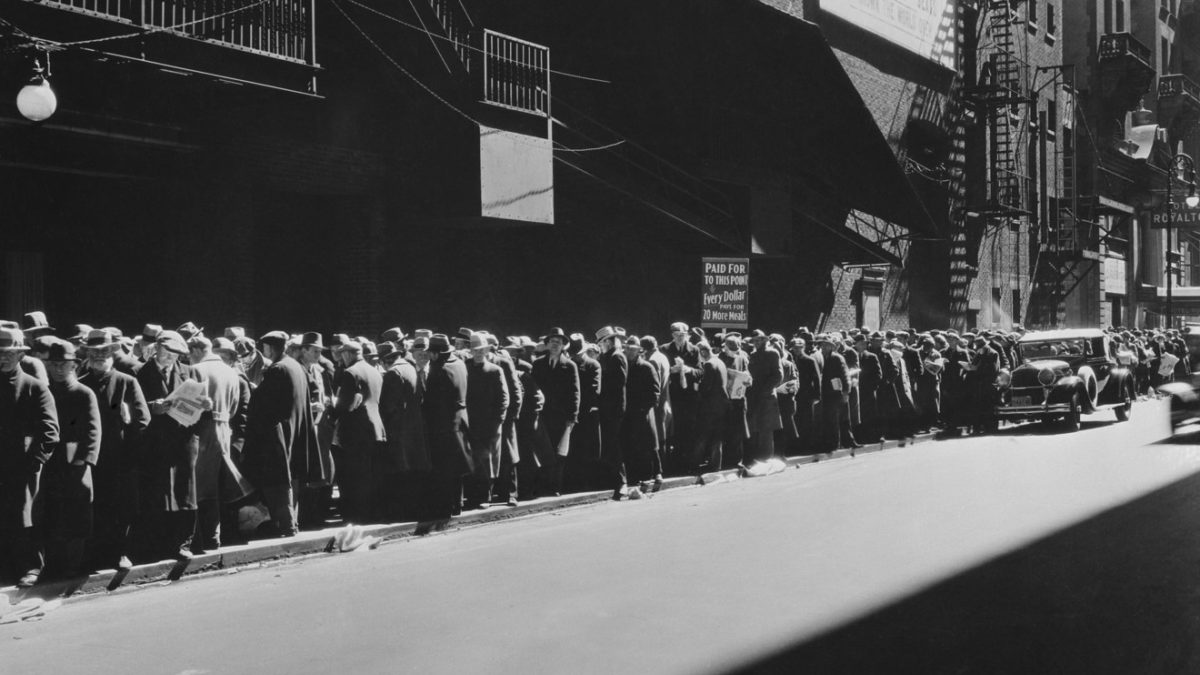‘This looks like a bear market rally, similar to that in 1929-1930’

Published: May 2, 2020 at 11:22 a.m. ET, By Shawn Langlois
‘Don’t be fooled by the recent rebound in stocks; the investment scene is beginning to resemble the 1929 market crash and the early 1930s Great Depression.’
That’s A. Gary Shilling, longtime economist and president of A. Gary Shilling & Co., delivering his gloomy take in a recent op-ed published on Bloomberg News.
“This looks like a bear market rally, similar to that in 1929-1930,” he said, “with an additional 30% to 40% drop in stocks to come as the deep global recession stretches into 2021.”
As you can see from this tweet, Shilling has been sounding this alarm for a while now:
#WallSt rallies on hopes the worst of the #CoronavirusOutbreak is over. To me, it's like 1929 when stocks first fell, then rallied before plunging anew as the Great Depression set in. Today, the damage to worldwide economies is yet to unfold and stocks will collapse to new lows.
— A. Gary Shilling (@agaryshilling) April 7, 2020
In his Bloomberg piece, Shilling pointed to the 48% plunge in the Dow Jones Industrial Average from Sept. 3 to Nov. 13 back in 1929, a pullback which may have “seemed like a reasonable correction” at the time, since the blue chips had rallied 500% in the eight years leading up to it.
So buyers stepped in and pushed stocks up 48% through April 17, 1930, a 52% retracement. The bull times, he wrote, didn’t last long as the Dow ultimately shed 89% from its September 1929 top.
Shilling is concerned we could see something similar unfold in the current market.
Read: Why a ‘return to normal’ could mean disaster for the stock market
He explained that while many economists are looking for a V-shaped rebound to deliver a sharp recovery in the second half of the year, he remains much more skeptical — regardless of how much stimulus the government pumps into the economy.
“Bear markets that accompany recessions last about 11 months, far longer than the recent slump,” Shilling wrote. “The gigantic monthly and fiscal stimulus employed so far, with more to come, are unlikely to offset the massive disruption of the coronavirus pandemic.”
He added that by the time the total decline in stock wealth he believes it will have a major impact on consumer spending, at home and abroad, as a painful recession takes firm hold.
“This pandemic is likely to be the most disruptive financial and social event since World War II with equally long-lasting consequences,” Shilling wrote, citing stark unemployment numbers. “Many will no doubt restrain spending in future years to rebuild savings, especially since the crisis caught them at a time of high debts and short financial reserves.”
Read: U.S. jobless claims climb 3.8 million to push coronavirus total to 30 million
Stocks were giving back some recent gains in Thursday’s trading session, with the Dow, S&P and Nasdaq all trading lower.
Source: www.marketwatch.com